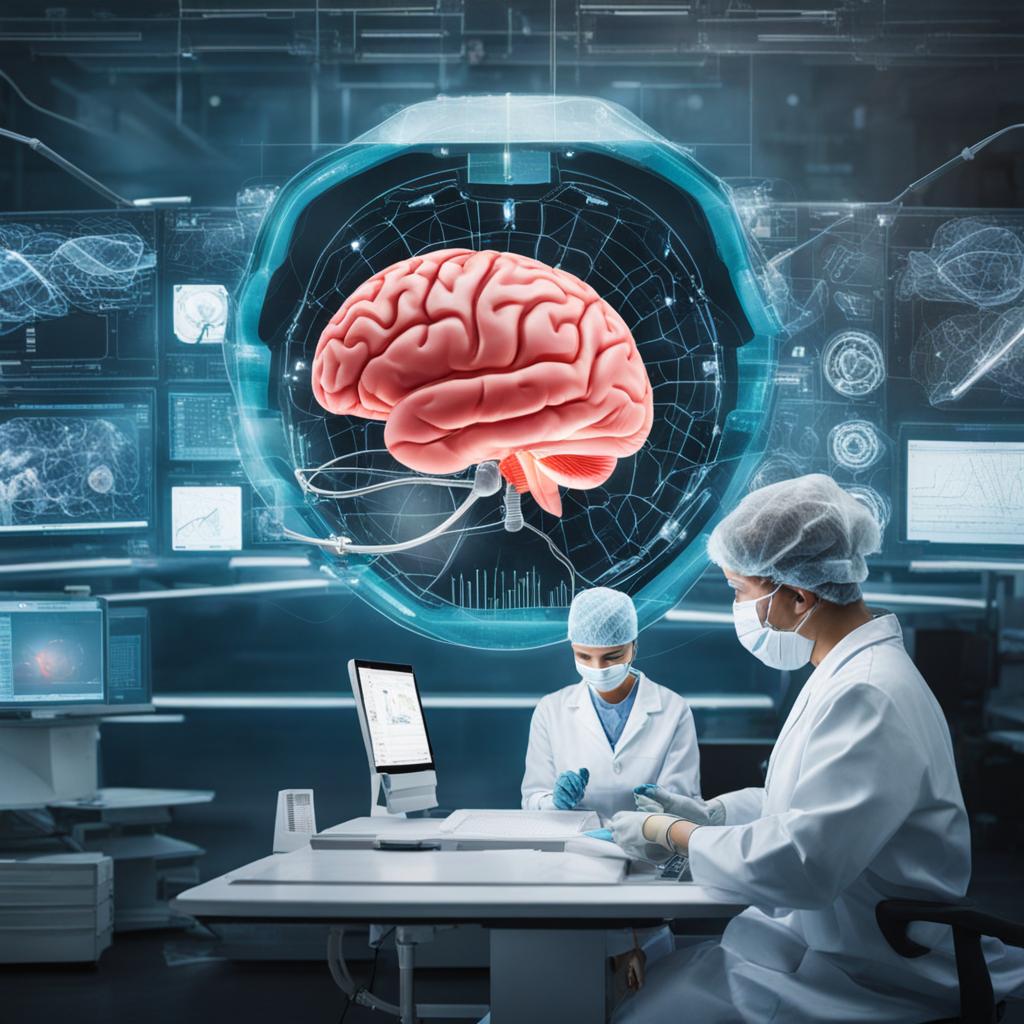According to a renowned neurosurgeon, utilizing artificial intelligence during brain surgery could be achievable within two years, making the procedure safer and more efficient.
To learn more precise keyhole brain surgery, trainee surgeons are using new AI technologies.
It was created at University College London and reveals small cancers as well as vital features like blood arteries in the brain’s core.
The UK’s healthcare system may experience “a real game-changer,” according to the government.
Critical structures
A millimeter in the incorrect direction might instantaneously kill a patient during precise and laborious brain surgery.
It’s crucial to avoid injuring the pituitary gland, a little grape-sized organ located in the middle of the brain. Any issues with it can result in blindness because it regulates every hormone the body produces.
According to consultant neurosurgeon Hani Marcus of the National Hospital for Neurology and Neurosurgery, if you take a too-small approach, you run the danger of not removing enough of the tumour.
If you go too far, you run the danger of harming these incredibly important structures.
The AI system has examined more than 200 recordings of this kind of pituitary operation, accumulating in just 10 months the amount of knowledge that would normally take a surgeon ten years to acquire.
Mr. Marcus claims that even very skilled surgeons like him can locate that boundary more accurately with the use of AI than they could without it.
An AI system that has witnessed more operations than any person has ever seen or could ever observe could exist in a few years.
Dr. Nicola Newell, a trainee, agrees that it is really beneficial.
She claims that it helps her stay focused during the mock operation and to anticipate the future phases and stages.
‘Marvel superhero’
AI increases everyone’s productivity significantly, regardless of what they do, according to Viscount Camrose, a government minister for AI.
You practically become your own Marvel superhero as a result.
He claimed that this kind of technology might revolutionize the field of medicine, enhancing everyone’s outcomes and providing a “very promising” future.
One of the 22 universities recently awarded government funding to help transform healthcare in the UK is University College London (UCL).
At the Wellcome / Engineering and Physical Sciences Research Council (EPSRC) Centre for Interventional and Surgical Sciences, engineers, doctors, and scientists are collaborating on the project.








